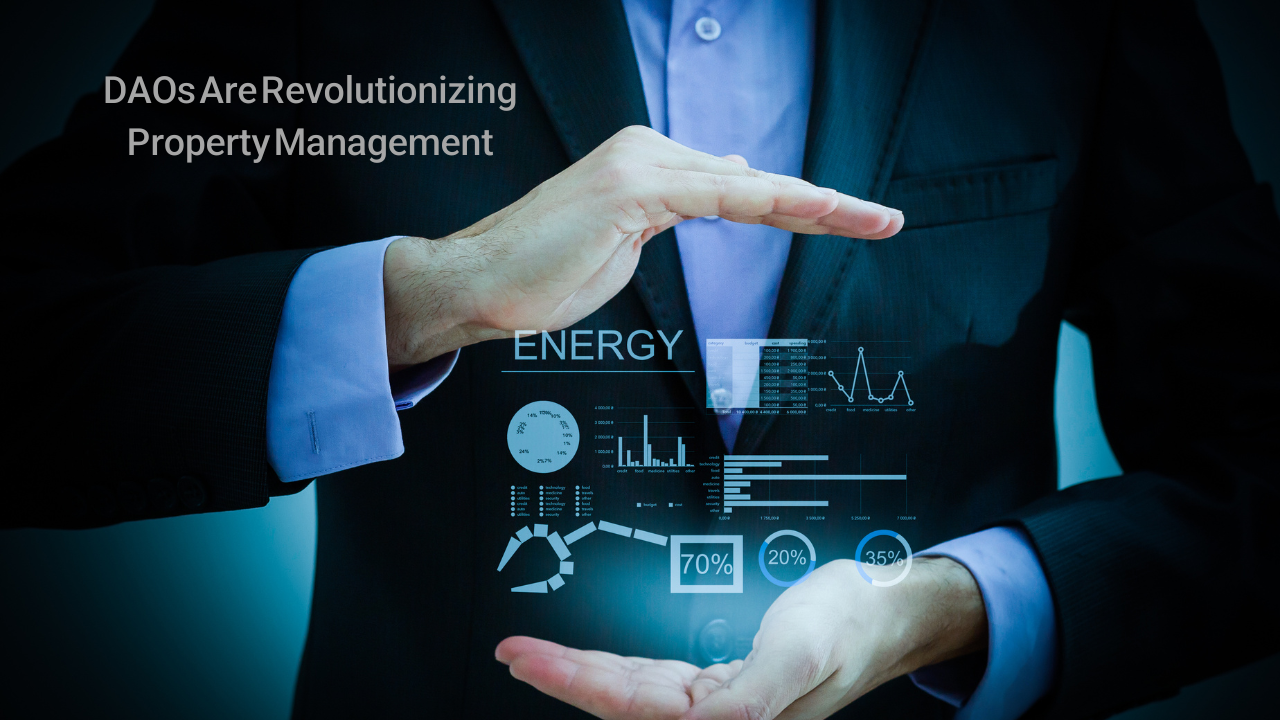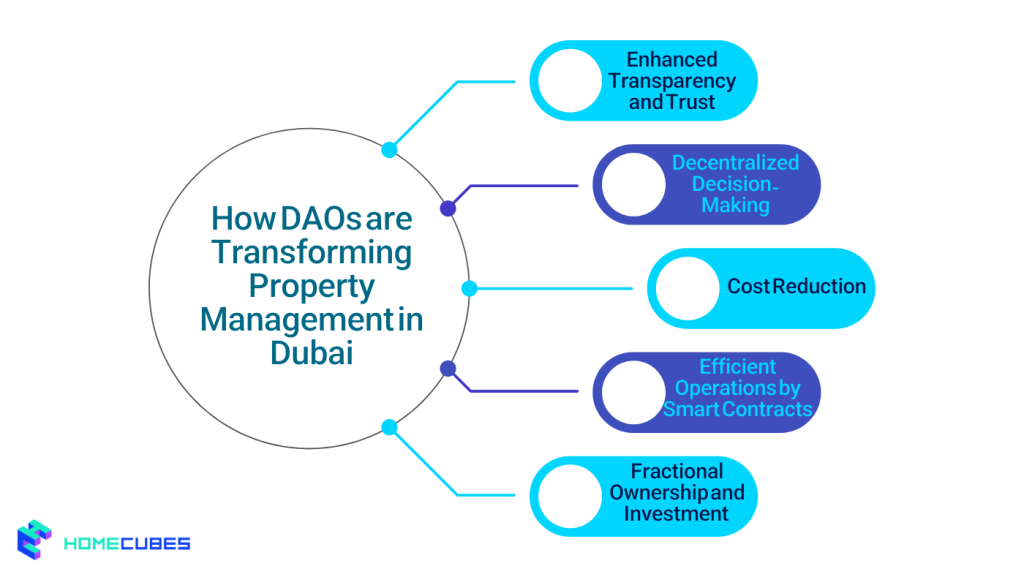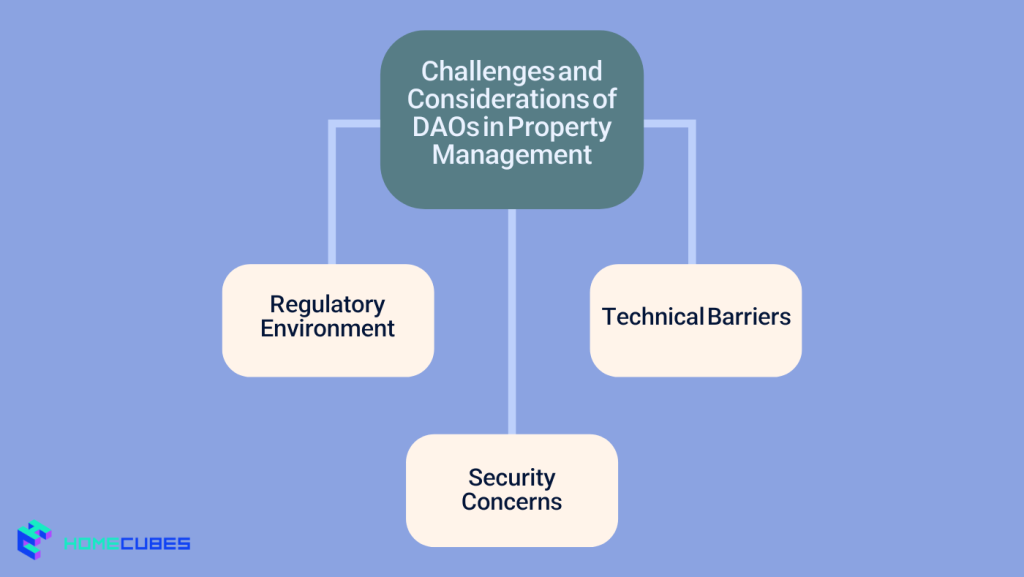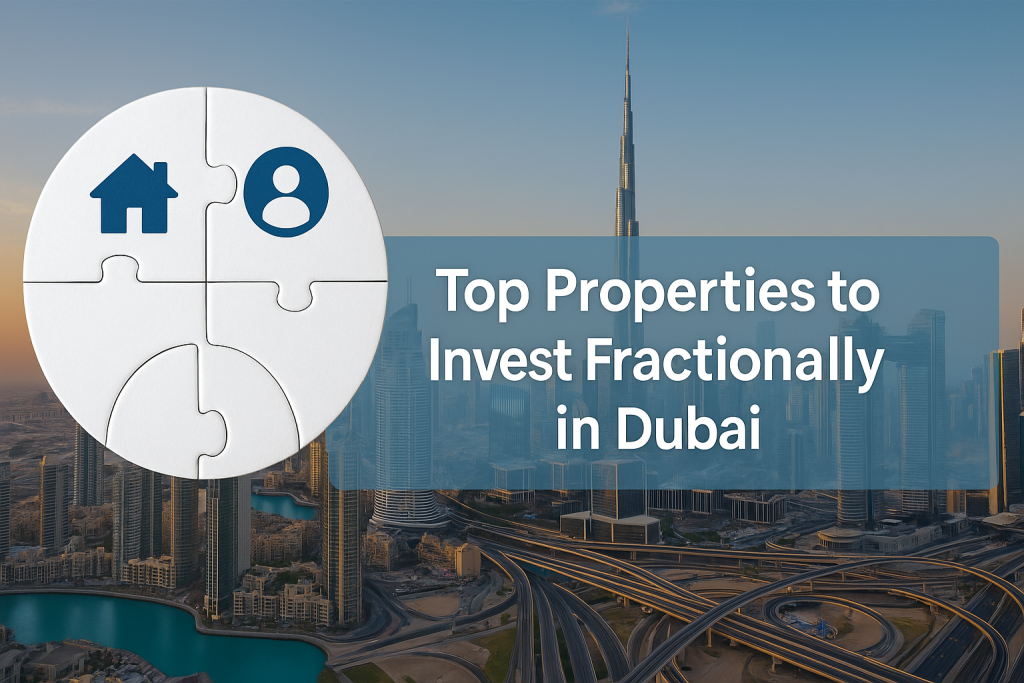

In the rapidly evolving landscape of technology and real estate, Decentralized Autonomous Organizations (DAOs) are emerging as a transformative force in property management. Particularly in Dubai, a city known for its innovative approach to urban development and digital integration, DAOs are reshaping how properties are managed, owned, and interacted with. This article explores the concept of DAOs, their application in property management, and how they are revolutionizing the real estate sector in Dubai.
#DAOs now manage over $9.5 billion in assets, compared to just $932 million in 2021.
Are #DAOs the future?
— The Moon (@TheMoonCarl) March 16, 2022
Understanding DAOs
What are DAOs?
A Decentralized Autonomous Organization (DAO) is an organization represented by rules encoded as a computer program that is transparent, controlled by organization members and not influenced by a central authority. DAOs, as another application of blockchain technology in real estate, ensures of immutable record of all transactions and rules . It is also verifiable by any participant. This structure allows for decentralized decision-making, community governance, and the potential for increased efficiency and transparency.
Core Principles of DAOs
- Decentralization: Control is distributed among members, reducing the power of centralized entities.
- Transparency: All transactions and decisions are recorded on the blockchain, making them accessible and verifiable.
- Autonomy: DAOs operate independently based on predefined rules and smart contracts, minimizing the need for intermediaries.
The Property Management Landscape in Dubai
Current Challenges
Dubai’s real estate market is characterized by rapid growth and development, but it also faces several challenges in property management, including:
- High Costs: Traditional property management often involves significant overheads, including management fees, maintenance costs, and administrative expenses.
- Lack of Transparency: Many transactions and decisions are opaque, leading to distrust among property owners and tenants.
- Inefficiency: Traditional processes can be slow and cumbersome, resulting in delays and frustrations for all parties involved.
The Need for Innovation
As Dubai continues to attract global investors and residents, there is a pressing need for innovative solutions in property management that can enhance efficiency, reduce costs, and improve transparency. This is where DAOs come into play.
How DAOs are Transforming Property Management in Dubai

1. Enhanced Transparency and Trust
DAOs facilitate transparency by recording all transactions and decisions on a public blockchain. This transparency builds trust among property owners, tenants, and managers, as everyone can access the same information. For instance, rental agreements, maintenance records, and financial transactions can be easily audited, reducing the risk of disputes and misunderstandings.
2. Decentralized Decision-Making
In a DAO, the decentralized decision-making means that property owners and tenants can have a say in how managing their properties. For example, through voting mechanisms, members can propose and vote on decisions related to maintenance schedules, property upgrades, or financial expenditures. This participatory approach empowers stakeholders, fostering a sense of community and shared responsibility.
3. Cost Reduction
DAOs can significantly reduce management costs by eliminating intermediaries. Traditional property management companies charge fees for their services, which can be substantial. With a DAO, property management tasks are handled collectively by the community, reducing the need for paid management services. Smart contracts automate many processes, such as rent collection and maintenance requests, further streamlining operations and cutting costs.
4. Efficient Operations through Smart Contracts
Smart contracts are self-executing contracts with the terms of the agreement directly written into code. In a property management context, smart contracts can automate various tasks, such as:
- Rent Payments: Tenants can set up automatic payments to execute on specific dates, reducing delays and ensuring timely transactions.
- Maintenance Requests: Tenants can submit maintenance requests that trigger automatic notifications to relevant service providers, ensuring swift responses.
- Voting Mechanisms: Members can vote on proposals directly through the DAO platform, with results automatically calculated and executed.
These efficiencies result in faster response times, reduced administrative burdens, and improved overall management.
5. Fractional Ownership and Investment Opportunities
DAOs can facilitate tangible asset tokenization and fractional ownership of properties, allowing multiple investors to buy shares in a property rather than purchasing it outright. This model lowers the barrier to entry for real estate investment, making it accessible to a broader audience. In Dubai, where luxury properties are prevalent, fractional ownership through a DAO can democratize access to high-value real estate.
Investors can benefit from property appreciation and rental income, while property managers can leverage a diverse pool of investors to fund property development and improvements.
The Role of Blockchain Technology
Blockchain technology is the backbone of DAOs, providing the infrastructure necessary for secure, transparent, and efficient operations. Key features of blockchain that enhance property management include:
- Immutability: Once recorded on the blockchain, information cannot be altered, ensuring the integrity of property records and transactions.
- Security: Blockchain uses cryptographic techniques to secure data, making it resistant to hacking and fraud.
- Accessibility: Participants can access information and participate in governance from anywhere in the world, fostering a global community of property owners and investors.
Case Studies: DAOs in Action
1. Real Estate DAOs
Several projects globally are exploring the potential of DAOs in real estate. For instance, DAO roles in crowdfunding for real estate projects through platforms that are enabling investors to pool funds for property acquisitions are attracting attention. Similar initiatives in Dubai could see a rise in community-driven investment in local properties.
2. Community Living Initiatives
DAOs can also enhance community living arrangements, such as co-living spaces or shared developments. By using a DAO model, residents can collectively manage shared amenities, make decisions about community events, and ensure that maintenance issues are addressed promptly.
Challenges and Considerations

1. Regulatory Environment
As with any new technology, the legal challenges facing DAOs in the Dubai real estate sector are still significant. Dubai’s authorities have shown interest in blockchain technology, but there is a need for clear regulations that govern DAOs in real estate to ensure legal compliance and protect stakeholders.
2. Technical Barriers
While the technology behind DAOs is becoming more user-friendly, there can still be a learning curve for traditional property managers and owners. Education and training will be crucial in helping stakeholders understand and adopt these new systems.
3. Security Concerns
Despite the security features of blockchain, DAOs are not immune to risks, such as smart contract vulnerabilities or hacking attempts. Ensuring that DAO platforms are developed with robust security measures is essential to protect assets and participant data.
Conclusion
DAOs represent a revolutionary approach to property management, offering transparency, efficiency, and community engagement. In Dubai, where innovation and technology are deeply integrated into the urban fabric, the adoption of DAOs could transform the real estate landscape. By leveraging blockchain technology and decentralized governance, property management can become more efficient, accessible, and accountable.
As Dubai continues to position itself as a leader in technology and urban development, embracing DAOs in property management may not only enhance the local real estate market but also serve as a model for other cities worldwide. With the right regulatory framework and community support, the future of property management in Dubai looks promising, driven by the principles of decentralization and innovation.
Homecubes, as the leading fractional ownership platform in the Dubai real estate market has defined lucrative projects. Please contact us with confidence, If you are seeking fractional real estate investment opportunities in Dubai.










